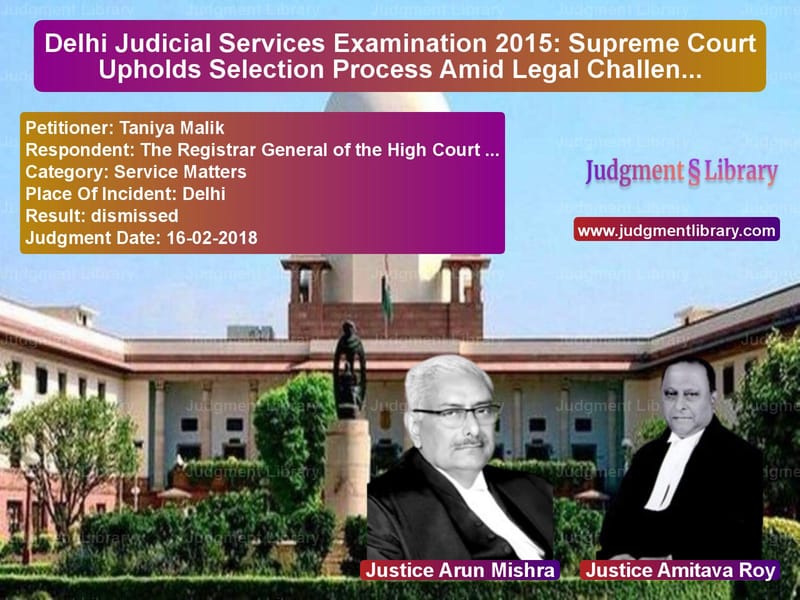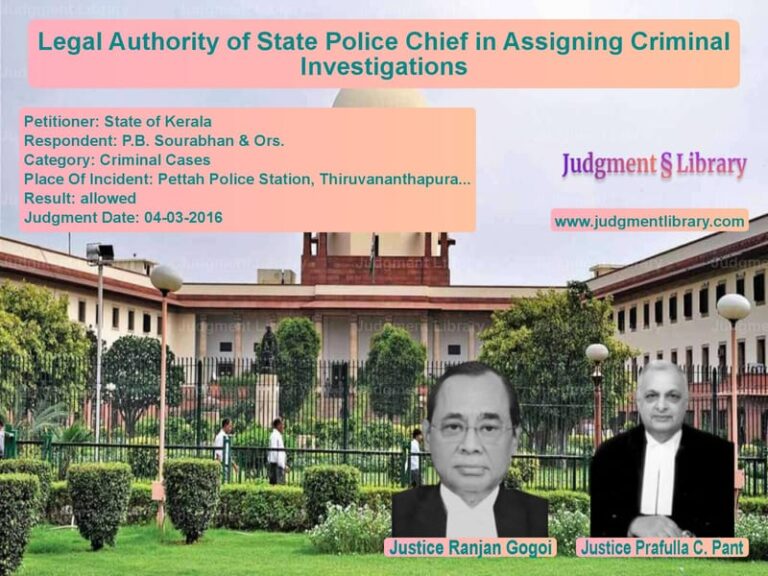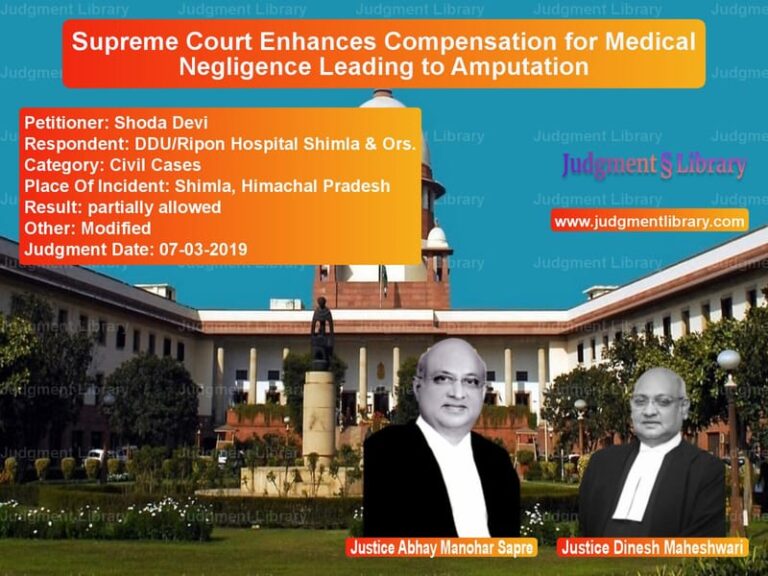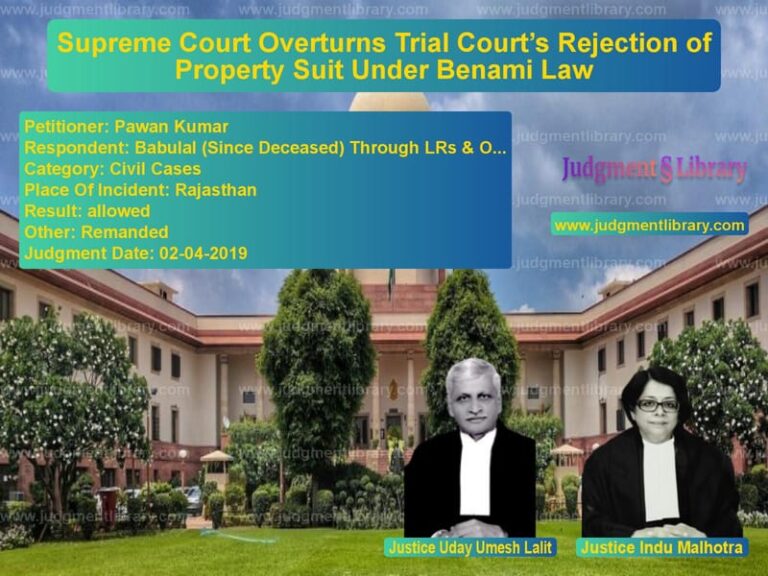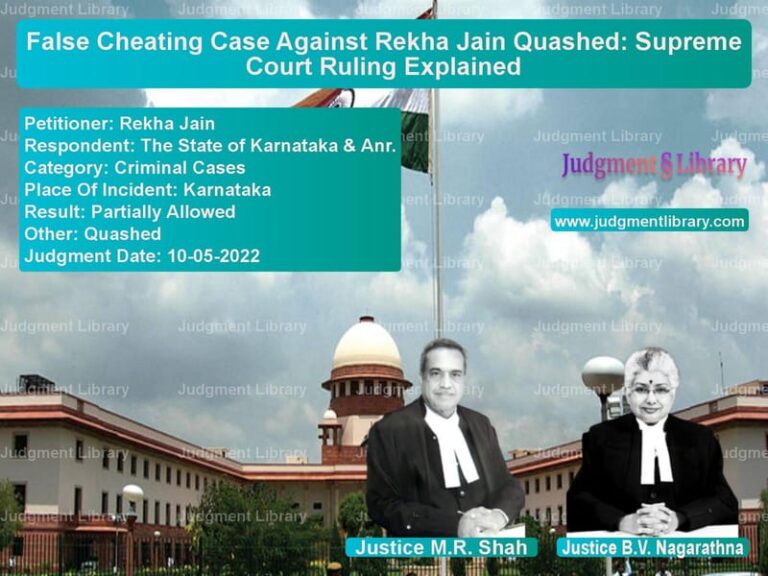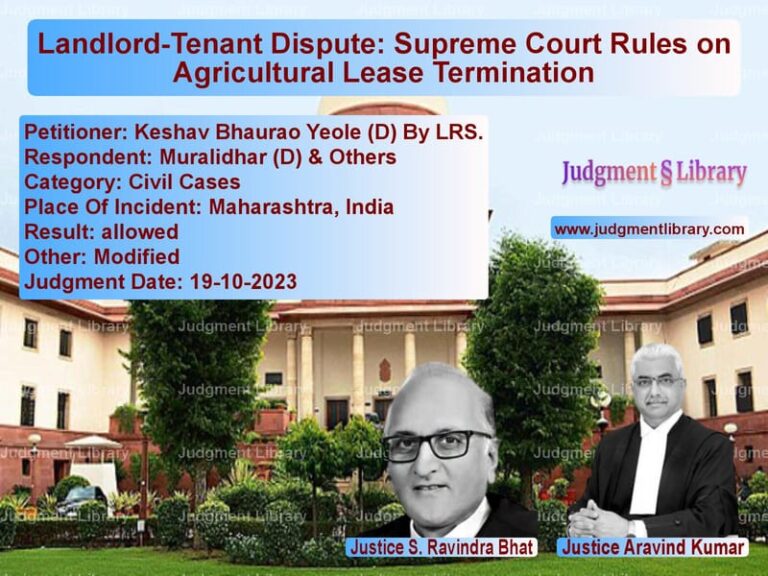Delhi Judicial Services Examination 2015: Supreme Court Upholds Selection Process Amid Legal Challenge
The Supreme Court of India recently delivered a significant judgment in the case of Taniya Malik vs. The Registrar General of the High Court of Delhi. This case arose from challenges to the selection process of the Delhi Judicial Services Examination (DJSE) 2015. Several petitioners sought judicial intervention regarding the cut-off criteria, evaluation process, and minimum marks required for selection. The Supreme Court dismissed the petitions, upholding the validity of the examination process and rejecting requests for moderation, revaluation, and relaxation of qualifying marks.
This ruling has broad implications for competitive judicial examinations, reinforcing the importance of transparent evaluation criteria and judicial discretion in setting qualification standards.
Background of the Case
The Delhi High Court issued an advertisement on October 3, 2015, for the Delhi Judicial Services Examination, offering 100 vacancies—68 for the General Category, 12 for Scheduled Castes, and 20 for Scheduled Tribes, including backlog vacancies. The recruitment process was divided into three stages:
- Preliminary Examination: A screening test to shortlist candidates for the main examination.
- Main Examination (Written): Candidates had to secure 50% aggregate marks (45% for reserved categories) and a minimum of 40% in each paper.
- Viva Voce (Interview): Candidates had to obtain at least 50% marks (45% for reserved categories) in the interview.
Out of 8,534 candidates, 914 cleared the preliminary examination. The main examination was conducted, and only 64 candidates (58 from the General Category and 6 from the Reserved Category) qualified for the interview stage.
Petitioners’ Arguments
The petitioners raised multiple challenges against the selection process:
1. Lowering the Minimum Cut-off Marks
Petitioners argued that the minimum qualifying marks in individual subjects should be reduced from 40% to 33%. They contended that too few candidates had been shortlisted, making the process unfair. It was highlighted that in previous years, three times the number of vacancies had been called for interviews, but in 2015, the ratio was significantly lower.
2. Re-evaluation and Moderation of Marks
Some petitioners sought re-evaluation of their answer sheets, particularly in the Criminal Law paper, alleging strict marking. They cited past Supreme Court rulings, such as Sanjay Singh v. UP Public Service Commission, to support the need for moderation.
3. Rounding Off of Marks
One petitioner who secured 49.9% aggregate marks argued that her marks should be rounded off to 50% to qualify for the interview.
4. Relaxation of Viva Voce Marks
Another petitioner failed the interview by securing 37% (below the required 45%) and sought relaxation of minimum marks for the SC category.
Respondent’s Arguments (Delhi High Court)
The Delhi High Court opposed the petitions, arguing:
- The recruitment process followed the Delhi Judicial Services Rules, 1970, which set clear guidelines for selection.
- The marking process was fair, with separate examiners evaluating different parts of the papers to prevent bias.
- Moderation was unnecessary because a single examiner evaluated each subject, unlike cases where multiple examiners assess the same paper.
- Rounding off marks was impermissible as per Supreme Court precedents.
- Viva voce was essential to assess candidates’ suitability for judicial service, and setting minimum marks ensured quality selection.
Supreme Court’s Analysis and Judgment
On Lowering the Cut-off Marks
The Court rejected the plea to reduce the minimum qualifying marks in written papers, stating:
“Minimum-passing marks in each paper are necessary to assess the academic knowledge of candidates in various subjects. It would not be logical to allow a candidate to qualify based on higher marks in one subject while failing in another.”
On Re-evaluation and Moderation
The Court ruled that moderation applies only when multiple examiners evaluate the same subject, which was not the case here. It cited Himachal Pradesh Public Service Commission v. Mukesh Thakur and reaffirmed:
“In the absence of a provision allowing re-evaluation, courts should not interfere in the examination process.”
On Rounding Off of Marks
Rejecting the argument for rounding off, the Court relied on Orissa Public Service Commission v. Rupashree Chowdhary, stating:
“When eligibility criteria are prescribed, they must be strictly adhered to. No relaxation or rounding off is permissible.”
On Minimum Marks for Viva Voce
The Court upheld the need for a minimum cut-off in interviews, emphasizing:
“Viva voce is necessary to assess a candidate’s communication skills, judgment, and suitability for judicial service. Merely securing high written exam marks does not guarantee suitability for the role.”
Key Takeaways from the Judgment
- Judicial Service Exams Require High Standards: The Court upheld stringent criteria to maintain quality in judicial appointments.
- Re-evaluation Is Not a Right: Without explicit provisions, courts will not order re-evaluation of answer sheets.
- Viva Voce Matters: Interviews play a crucial role in assessing the overall capabilities of candidates beyond written exams.
- No Rounding Off of Marks: Eligibility criteria must be strictly followed, with no scope for subjective relaxation.
Conclusion
The Supreme Court’s verdict in Taniya Malik vs. The Registrar General of the High Court of Delhi reaffirms the principle that competitive judicial examinations must adhere to strict selection criteria. The ruling upholds transparency and fairness in the recruitment process, ensuring that only the most competent candidates qualify for judicial appointments.
This decision serves as a benchmark for future challenges to judicial selection processes, reinforcing the judiciary’s commitment to merit-based recruitment and procedural integrity.
Petitioner Name: Taniya MalikRespondent Name: The Registrar General of the High Court of DelhiJudgment By: Justice Arun Mishra, Justice Amitava RoyJudgment Date: 16-02-2018
Don’t miss out on the full details! Download the complete judgment in PDF format below and gain valuable insights instantly!
Download Judgment: Taniya Malik vs The Registrar Genera Supreme Court of India Judgment Dated 16-02-2018.pdf
Direct Downlaod Judgment: Direct downlaod this Judgment
See all petitions in Recruitment Policies
See all petitions in Public Sector Employees
See all petitions in Employment Disputes
See all petitions in Judgment by Arun Mishra
See all petitions in Judgment by Amitava Roy
See all petitions in dismissed
See all petitions in supreme court of India judgments February 2018
See all petitions in 2018 judgments
See all posts in Service Matters Category
See all allowed petitions in Service Matters Category
See all Dismissed petitions in Service Matters Category
See all partially allowed petitions in Service Matters Category

